INTERESTING FACTS ABOUT CANADA YOU DIDN'T KNOW
SANTA IS CANADIAN
Every year millions of children send letters to Santa Claus. Have you ever wondered where they go? They are all sent to a Canadian address: The North Pole’s postal address, H0H 0H0. In 2008, Santa also received Canadian citizenship issued by the Immigration Minister.

20% OF THE WORLD'S SURFACE FRESHWATER
Canada is a freshwater galore. Over two million lakes, streams and rivers, located within the country’s borders make up one-fifth of the world’s freshwater resources.
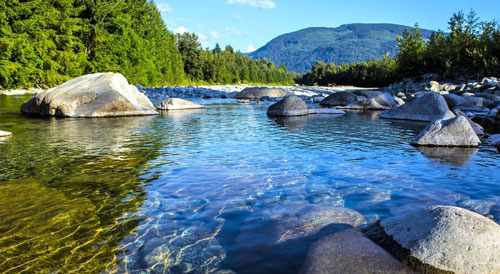
Canada has the longest coastline in the world
Canada's coastline is the world's longest, measuring 243,042 km (includes the mainland coast and the coasts of offshore islands). This compares with Indonesia (54,716 km), Russia (37,653 km), the United States (19,924 km) and China (14,500 km)
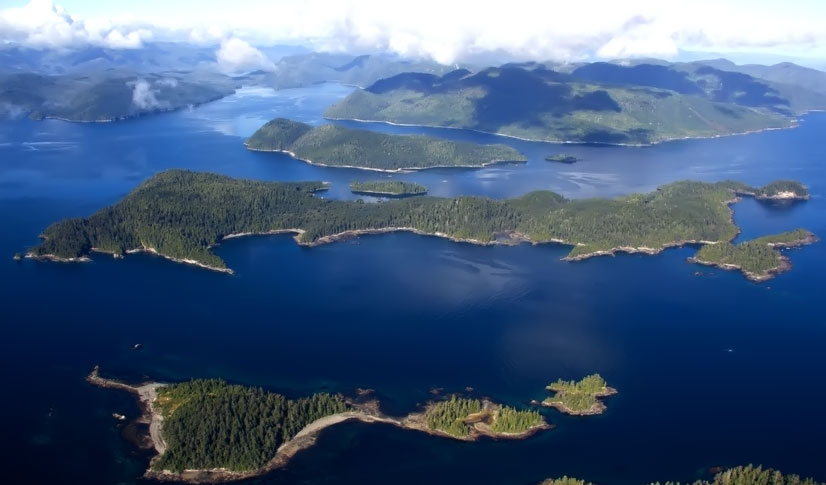
“EH” IS AN ACTUAL WORD
If you’re familiar with Canadian slang, you must have heard "eh" used in everyday conversations. The interjection is often used at the end of a question or to greet someone at a distance. It’s even listed in the Canadian Oxford Dictionary!
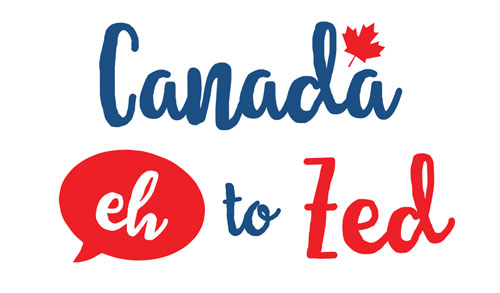
MAPLE SYRUP MONOPOLY
For Canadians, pancakes and maple syrup are inseparable. But the relationship runs even deeper than that. Small towns all over Quebec are responsible for almost 80% of the world’s maple syrup production.
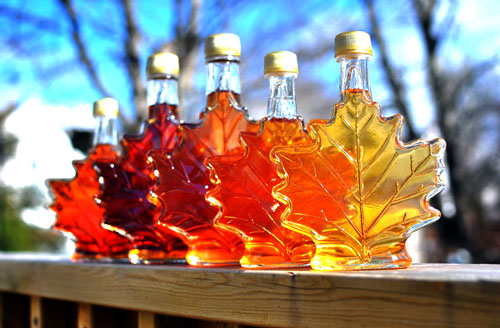
Lakes in Canada
More than half of all the lakes in the world are located in Canada! The country counts more than 3 million lakes and 31,700 big lakes with an area over 300 hectares. Canada also includes two of the biggest lakes in the world: Great Bear Lake and Great Slave Lake.
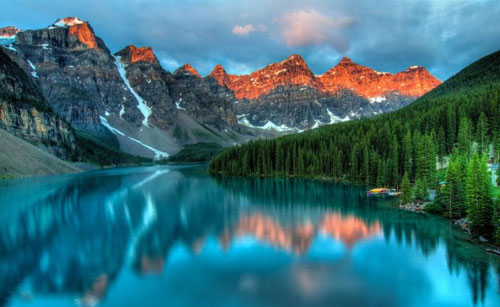
Nine out of ten Canadians live in the US - Canada border
U.S. sources generally cited a statistic based on 100 miles (about 160 kilometres) from the border. Meanwhile, Canadian sources often cited one based on 150 kilometres (about 93 miles). Either way, somewhere between 70% and over 90% of Canadians lived within a “narrow” band along its southern border. Even reputable sources that seemingly checked their facts rigorously could not seem to agree on a figure.

Canada is bigger than the European Union
Ever been travelling abroad and had someone ask you if you know Kimberly from Vancouver or Theo from Montreal after you told them you were Canadian? Our country’s vast land area is often hard to comprehend for those who haven’t experienced it firsthand. Here are some fun facts about Canada to put its breathtaking scale into perspective: It’s bigger than the entire European Union (33 times bigger than Italy and 15 times bigger than France), more than 30 per cent larger than Australia, five times as big as Mexico, three times as big as India and about the same size as 81,975 Walt Disney Worlds put together. So, in other words, no, you don’t know Kimberly or Theo!
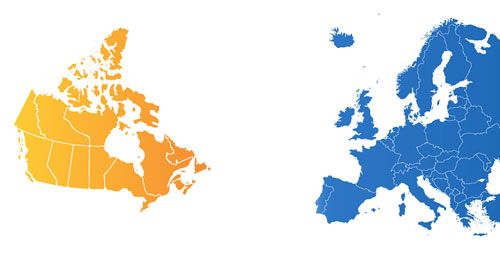
Canada has six times more oil than Russia
It’s thick, it’s sticky and Canada has an estimated 176.8 billion recoverable barrels of it. That’s right, crude bitumen—a semi-solid source of petroleum—is available in abundance in Canada’s oil sands. There’s an estimated 249.67 billion accessible barrels of the black stuff in the world and Canada has about 70.8 per cent of it—four times more than Kazakhstan and six times more than Russia.Here’s what one recent immigrant wishes he’d known before moving to Canada.
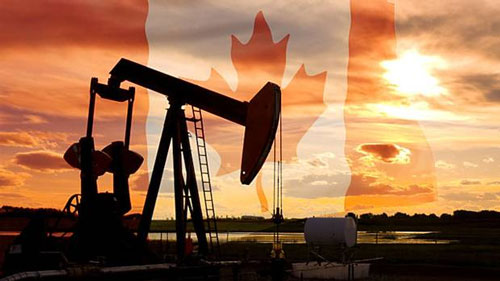
Canada has 10 per cent of the world’s forests
One of the most widely-known facts about Canada is that we’ve got an abundance of trees, but did you know that Canada actually boasts 30 per cent of the world’s boreal forest and 10 per cent of the world’s total forest cover? An incredible 396.9-million hectares of forest and other wooded land can be found across the country, and 68 per cent of that is coniferous. The best part of all? Most of our forest land is publicly owned, and much of it can be explored in these 50 gorgeous parks across Canada.
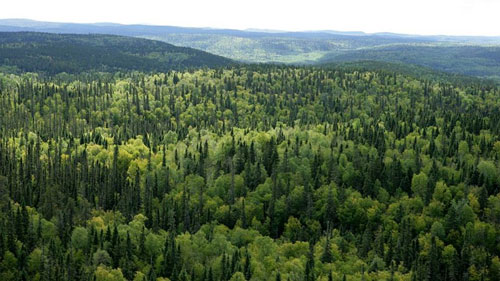
MAC AND CHEESE FANS
Although mac and cheese traces its roots back to Italy, Canada has certainly helped spread the love for this irresistibly creamy and cheesy dish. Every year, locals indulge in 55% more boxed mac and cheese than Americans. Canadian consume an average of 1.7 million boxes out of the 7 million sold weekly.

MARS-LIKE TEMPERATURE
One of the most widely-known facts about Canada is that we’ve got an abundance of trees, but did you know that Canada actually boasts 30 per cent of the world’s boreal forest and 10 per cent of the world’s total forest cover? An incredible 396.9-million hectares of forest and other wooded land can be found across the country, and 68 per cent of that is coniferous. The best part of all? Most of our forest land is publicly owned, and much of it can be explored in these 50 gorgeous parks across Canada.

GIVE CANADA A CALL
For those who want to reach out to Canada, the official phone number is 1-800-O-CANADA. The number provides a general information service, and – in infrequent instances – you may be contacted to deliver Government of Canada services.
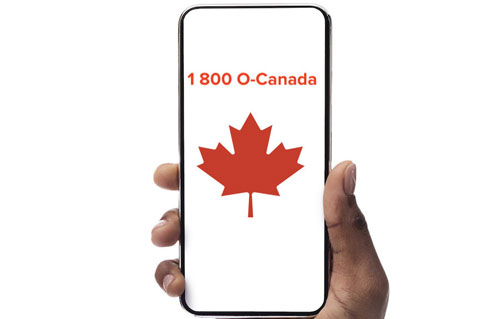
192,444 SMITHS
Do you know someone named Smith? The surname is ranked as the most popular in seven Canadian territories and provinces. Across the entire country, Smith shows up as frequently as one in every 192 people.
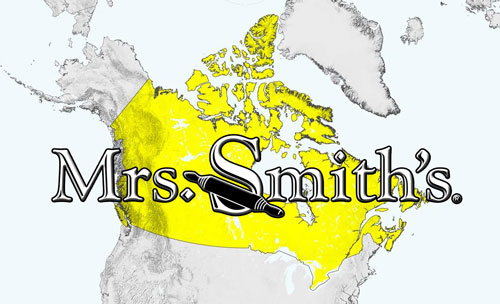
Apology Act it’s the Law
Apology Act it’s the Law – In fact Canadians apologize so much, Canada passed the apology act meaning, you express sympathy or regret. It does not, in law, constitute an express or implied admission of fault or liability by the person in connection with that matter. But it doesn’t mean an expression of sympathy or regret.

Canada is the number 1 donut consumer in the world.
Canada is the number 1 donut consumer in the world. We only have 30-million people in Canada, but we eat 1-billion donuts annually. We can thank Tim Horton’s for this title. It is Canada’s most popular coffee and donut chain.

Polar Bear Attack
In Churchill Manitoba Nobody Locks Their Doors – In the far north town of Churchill, Manitoba nobody locks their doors to their house or cars in case of a polar bear attack. Churchill is located in the center of Polar Bear Alley and polar bears walk freely through the town. They have learned to live with the mighty polar bear.
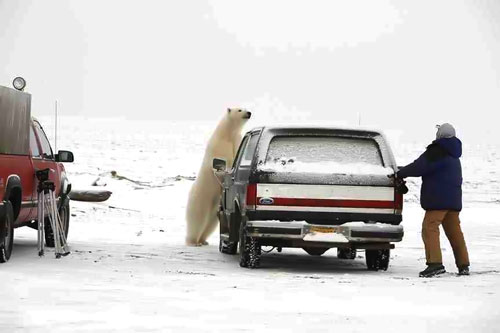
Canada has the only walled city in North America
Quebec City has a special feature that makes it unique in Canada (and the U.S., for that matter): it has walls. One of the most fascinating facts about Canada is that Quebec City is the only city north of Mexico that still has fortified walls. First the French, and later the English, built up Quebec City’s fortifications between the 17th and the 19th centuries. Quebec’s entire historic district, including the ramparts, has since been declared a World Heritage Site by UNESCO.
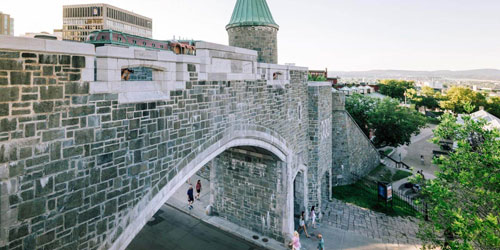
this information created by readersdigest.ca
this information created by kids-world-travel-guide.com
this information created by adventures.com